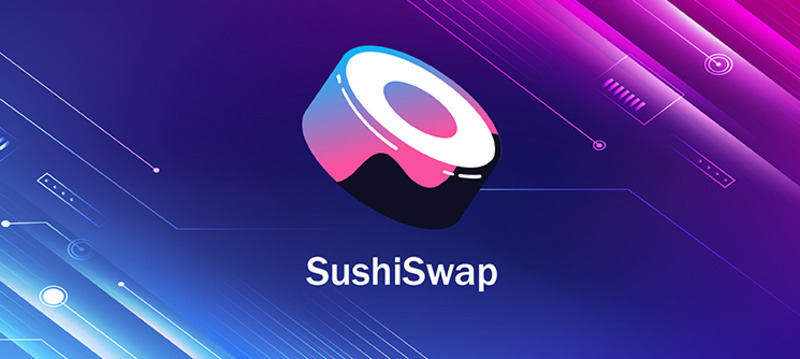Decentralized Exchanges (DEX) have emerged as a revolutionary concept in the world of finance, leveraging the power of blockchain technology to transform traditional financial systems. In this article, we will delve into the concept of DEX, highlighting their impact on the financial landscape and exploring the advantages and challenges associated with these platforms.
Introduction to Decentralized Exchanges (DEX)
Decentralized Exchanges, commonly referred to as DEX, are online platforms that facilitate the peer-to-peer exchange of digital assets, such as cryptocurrencies, without the need for intermediaries. Unlike centralized exchanges, which rely on a trusted third party to hold and manage users’ funds, DEX operate on smart contracts, enabling users to trade directly with each other.
Understanding the concept of decentralization
Decentralization lies at the core of Decentralized Exchanges. It involves the distribution of control, authority, and decision-making across a network of participants, eliminating the need for a central authority. In the context of Decentralized Exchanges, this means that users have full control over their funds, as they manage their private keys and execute transactions directly on the blockchain.
How DEX differs from centralized exchanges
DEX differ significantly from centralized exchanges in terms of their underlying architecture and operational model. While centralized exchanges act as intermediaries and custodians of users’ funds, DEX leverage smart contracts and blockchain technology to automate and secure the trading process. This decentralized approach provides numerous benefits to users.
Advantages of using DEX
- Increased Security: DEXs operate on decentralized networks, which means that user funds are not held on a centralized platform. This reduces the risk of hacking and theft since there is no central point of failure. Users retain control of their private keys and have the sole authority over their funds, minimizing the risk of security breaches.
- Enhanced Privacy: DEXs prioritize user privacy by allowing direct peer-to-peer transactions. Users do not need to disclose personal information or undergo extensive identity verification processes. Trading activities on DEXs are pseudonymous, providing users with a greater level of privacy and confidentiality.
- Greater Control and Ownership: DEXs allow users to maintain control and ownership of their assets throughout the trading process. Funds are stored in users’ personal wallets, and transactions occur directly between wallets without the need for intermediaries. This eliminates the need to trust a centralized exchange with custody of funds.
- Global Accessibility: These are accessible to users from all around the world. There are no geographical restrictions or limitations on participation. As long as users have an internet connection and a compatible wallet, they can access and trade on DEXs. This global accessibility promotes financial inclusion and opens up opportunities for individuals who may face restrictions on centralized exchanges.
- Elimination of Counterparty Risk: DEXs leverage smart contracts to automate the trading process. By using smart contracts, Decentralized Exchanges remove the need for intermediaries and rely on code execution to facilitate trades. This eliminates counterparty risk since trades are settled directly between buyers and sellers without the involvement of a centralized entity.
- Continuous Market Access: DEXs operate 24/7, enabling users to trade assets at any time, without being limited to specific market hours. This constant availability ensures that users have the opportunity to react to market movements and execute trades whenever they deem necessary.
- Transparent and Auditable: DEXs operate on public blockchains, allowing for transparency and immutability of transaction history. All transactions and order books are publicly accessible and verifiable, ensuring a high level of trust and accountability. This transparency promotes confidence in the trading process and reduces the risk of manipulation.
Challenges and limitations of DEX
- Liquidity: DEXs often face liquidity challenges compared to their centralized counterparts. The absence of a central order book and the fragmentation of liquidity across different decentralized platforms can result in lower trading volumes and higher slippage. This can impact the execution of large trades and limit the availability of certain trading pairs.
- User Experience: The user experience on DEXs can be more complex and less intuitive compared to centralized exchanges. Interacting with smart contracts and managing wallets require a certain level of technical proficiency. This can be a barrier for less experienced users who may find it challenging to navigate the decentralized ecosystem.
- Limited Asset Offerings: DEXs may have a limited selection of available assets compared to centralized exchanges. The process of listing new tokens on DEXs can be more involved and slower due to the need for community consensus and security audits. As a result, users may not find all the assets they wish to trade on DEXs.
- Transaction Speed and Scalability: Some DEXs operate on public blockchains, which may experience scalability limitations and slower transaction speeds during periods of high network congestion. This can result in delays and higher transaction fees, impacting the overall user experience.
- Smart Contract Risks: DEXs heavily rely on smart contracts for the execution of trades and handling of funds. While smart contracts undergo rigorous audits, there is always a risk of coding vulnerabilities or exploits. Malicious actors may attempt to exploit these vulnerabilities, potentially leading to financial losses for users.
- Regulatory Challenges: DEXs operate in a regulatory gray area in many jurisdictions. As regulations evolve, there is uncertainty surrounding the compliance requirements for DEXs. This can create challenges for users seeking to ensure compliance with local laws and regulations.
- Centralization of Liquidity Provision: Some DEXs rely on centralized liquidity providers to enhance liquidity. While the core trading mechanism remains decentralized, the reliance on centralized liquidity sources introduces a degree of centralization and counterparty risk.
- Limited Customer Support: DEXs typically lack the robust customer support systems found in centralized exchanges. As decentralized platforms, they are often governed by the community, and resolving user issues may take longer due to the decentralized decision-making process.
Popular Decentralized Exchanges in the Market
There are several decentralized exchanges (DEX) that have gained popularity in the market due to their innovative features and user-friendly interfaces. Let’s explore three of the most notable ones:
Uniswap
Uniswap is a leading decentralized exchange built on the Ethereum blockchain. It introduced the concept of automated market makers (AMMs), revolutionizing the way users trade assets. Uniswap operates using liquidity pools, which are created and managed by smart contracts. Users can trade directly from their wallets, without the need for intermediaries or order books. Uniswap has played a significant role in the growth of decentralized finance (DeFi) and has become a go-to platform for many users seeking to swap and provide liquidity for various ERC-20 tokens.
PancakeSwap
PancakeSwap is a decentralized exchange that operates on the Binance Smart Chain (BSC). It gained traction due to its lower transaction fees and faster confirmation times compared to the Ethereum network. PancakeSwap uses a similar AMM model as Uniswap, allowing users to swap tokens and provide liquidity to earn rewards. Additionally, PancakeSwap introduced innovative features such as yield farming and staking, providing users with opportunities to earn additional tokens. Its user-friendly interface and attractive incentives have attracted a substantial user base within the BSC ecosystem.
SushiSwap

SushiSwap is a decentralized exchange that emerged as a community-driven alternative to Uniswap. It operates on the Ethereum blockchain and aims to provide users with improved incentives for liquidity provision. SushiSwap incentivizes users to provide liquidity by rewarding them with its native token, SUSHI. Similar to Uniswap, SushiSwap uses AMMs to facilitate token swaps and provide liquidity. The platform has gained popularity through its innovative features, such as yield farming, where users can stake their tokens to earn additional rewards. SushiSwap has established itself as a competitor to Uniswap and has contributed to the growth of the DeFi ecosystem.
Conclusion
Decentralized Exchanges (DEX) have emerged as a disruptive force in the financial landscape, leveraging blockchain technology to redefine how assets are traded and financial services are accessed. With increased security, reduced fees, and broader accessibility, DEX platforms offer numerous advantages to users worldwide. However, challenges such as liquidity concerns and regulatory oversight need to be addressed for the widespread adoption of DEX. As DEX continue to innovate and mature, they have the potential to reshape the financial landscape, democratize access to financial services, and empower individuals globally.
FAQs
Can I use decentralized exchanges to trade traditional assets?
Decentralized exchanges primarily facilitate the trading of digital assets, such as cryptocurrencies. However, with the emergence of tokenization, some platforms are exploring the possibility of trading traditional assets, such as stocks and real estate, on the blockchain. This is an area of ongoing development and regulatory consideration.
Are decentralized exchanges safe?
Decentralized exchanges offer enhanced security compared to centralized exchanges. By eliminating the need for a central authority to hold users’ funds, the risk of hacks and security breaches is significantly reduced. However, users should still exercise caution, follow best security practices, and conduct thorough research before using any DEX platform.
How do decentralized exchanges ensure liquidity?
Decentralized exchanges leverage various mechanisms, such as automated market makers (AMMs), to ensure liquidity. AMMs use smart contracts to create and manage liquidity pools, enabling users to trade assets directly from these pools. Liquidity providers are incentivized by earning a share of the trading fees generated by the pool.
Are decentralized exchanges regulated?
Decentralized exchanges generally operate in a more decentralized and unregulated environment compared to centralized exchanges. However, regulatory frameworks are evolving, and some jurisdictions are taking steps to provide clarity and oversight to the DEX industry. Users should be aware of the legal and regulatory implications in their respective jurisdictions.
How do I get started with decentralized exchanges?
To get started with decentralized exchanges, you will need a compatible digital wallet, such as MetaMask. You can connect your wallet to a DEX platform, deposit funds, and start trading. It’s essential to conduct thorough research.

